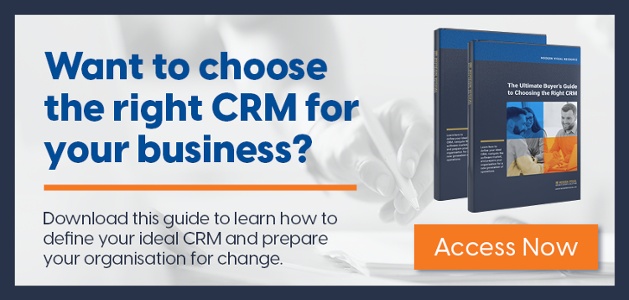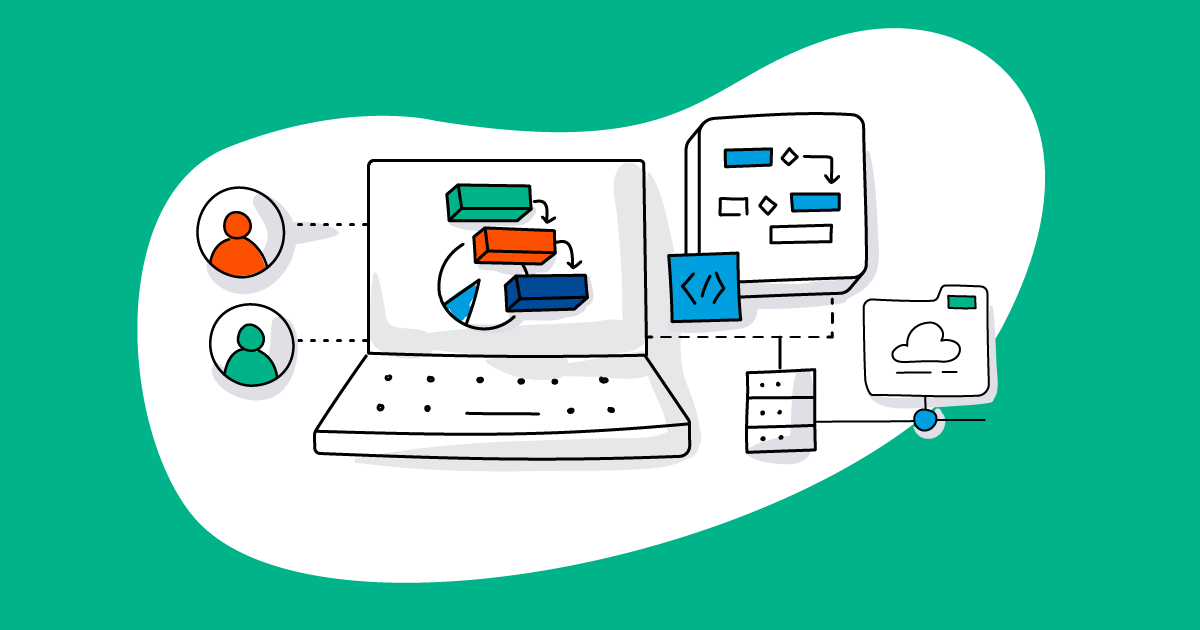
Is my business ready for a CRM upgrade?
Your CRM is the heart of your customer relationship management strategy. But like any piece of technology, it can become outdated. So, how do you know when it's time to upgrade? Let's find out in this post.
"A CRM that can't keep pace is a liability, not an asset."
"Just as businesses adapt to new market trends and customer expectations, their technology must evolve as well. A CRM upgrade is not just about replacing software; it's about investing in a tool that empowers your team, enhances customer experiences, and drives sustainable growth."
Lochlan Ross, our Lead Solutions Engineer at Modern Visual.
What is a CRM ?
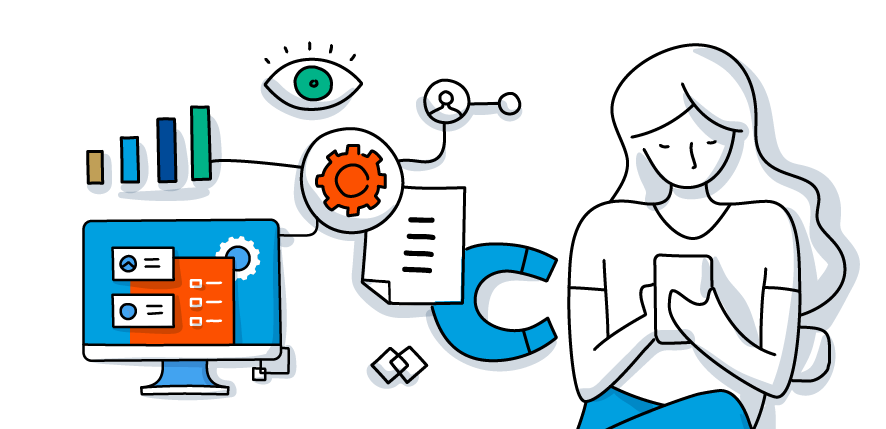
CRM stands for Customer Relationship Management. It's a type of software or system that businesses use to manage their interactions with customers. The goal is to improve customer satisfaction, loyalty and sales. Aligning your tools and software through integrations, helps improve business performance and enables you to make better business decisions, based on holistic data.
Signs Your CRM needs an upgrade
- Outdated features: If your CRM lacks essential features like mobile optimisation, social media integration or advanced analytics, it might be time for an upgrade.
- Poor performance: Slow loading times, frequent crashes or data inconsistencies can hinder productivity and frustrate users.
- Inefficient workflows: If your CRM doesn't support your sales process or doesn't integrate well with other tools, it's likely not optimising your team's efficiency.
- Data quality issues: Inaccurate or incomplete data can lead to poor decision-making. A new CRM with better data management capabilities can improve data quality.
- Security concerns: Outdated CRMs may have vulnerabilities that put your customer data at risk.
- Lack of scalability: If your business is growing rapidly, your current CRM may not be able to handle the increased workload. Can you implement automation or scaleable strategic solutions with your current software?
- User dissatisfaction: If your team is constantly complaining about the CRM, it's a clear sign of a problem.
Benefits of upgrading your CRM
- Improved efficiency: A modern CRM can automate tasks, streamline workflows and save your team time.
- Enhanced customer experience: Better data management and personalisation capabilities can lead to improved customer satisfaction.
- Increased sales: A CRM with advanced sales tools can help your team close more deals.
- Better decision making: Advanced analytics and reporting can provide valuable insights to inform your business strategy.
How to choose the right CRM upgrade

When considering a CRM upgrade, it's essential to evaluate your business needs carefully. Consider the following factors:
- Size and industry: Your CRM should align with your business size and industry-specific requirements.
- Budget: Determine your budget for the CRM and any implementation costs.
- Features: Identify the features that are essential for your business.
- Scalability: Choose a CRM that can grow with your business.
- Integration: Ensure the CRM can integrate with your existing tools.
- User adoption: Consider how easy it will be for your team to adapt to the new system.
Tech stack optimisation: A critical step in CRM upgrades
A tech stack refers to the collection of software and hardware tools that your company uses to build, run and manage its applications and services. When upgrading your CRM, it's essential to consider your entire tech stack to ensure optimal performance, integration and efficiency.

Why tech stack optimisation matters
- Integration: A well-optimised tech stack ensures seamless integration between your CRM and other tools, preventing data silos and improving workflows.
- Performance: A cohesive tech stack can enhance the overall performance and responsiveness of your CRM.
- Scalability: As your business grows, a scalable tech stack can accommodate increased workloads without sacrificing performance.
- Cost-effectiveness: Optimising your tech stack can help you avoid redundant tools and reduce costs.
Tips for optimising your tech stack when upgrading your CRM

- Assess your current tech stack: Conduct a comprehensive review of your existing software and hardware tools. Identify any redundancies, inefficiencies or outdated technologies.
- Define your business goals: Clearly articulate your business objectives and how your CRM will contribute to achieving them. This will help you select the right tools and optimise your tech stack accordingly.
- Evaluate CRM compatibility: Ensure that your chosen CRM is compatible with your existing tech stack, particularly in terms of integrations and data formats.
- Consider cloud-based solutions: Cloud-based solutions often offer better scalability, flexibility and cost-effectiveness. Evaluate if they align with your business needs and infrastructure.
- Prioritise integration: Identify critical integrations between your CRM and other tools (e.g., marketing automation, sales enablement, customer support). Prioritise these integrations during the upgrade process.
- Optimise data management: Ensure that your data management practices are efficient and support your CRM's requirements. This may involve data cleansing, standardisation and migration strategies.
- Consider future scalability: As your business grows, your tech stack should be able to accommodate increased workloads. Choose tools that are scalable and can adapt to future needs.
- Regularly review and optimise: Periodically reassess your tech stack to identify areas for improvement and ensure it continues to support your business goals.
Upgrading your CRM can be a significant investment, but it's often necessary to stay competitive and drive business growth. By carefully evaluating your current system and considering the benefits of an upgrade, you can make an informed decision that will positively impact your organisation.
Don't stop now. Keep learning
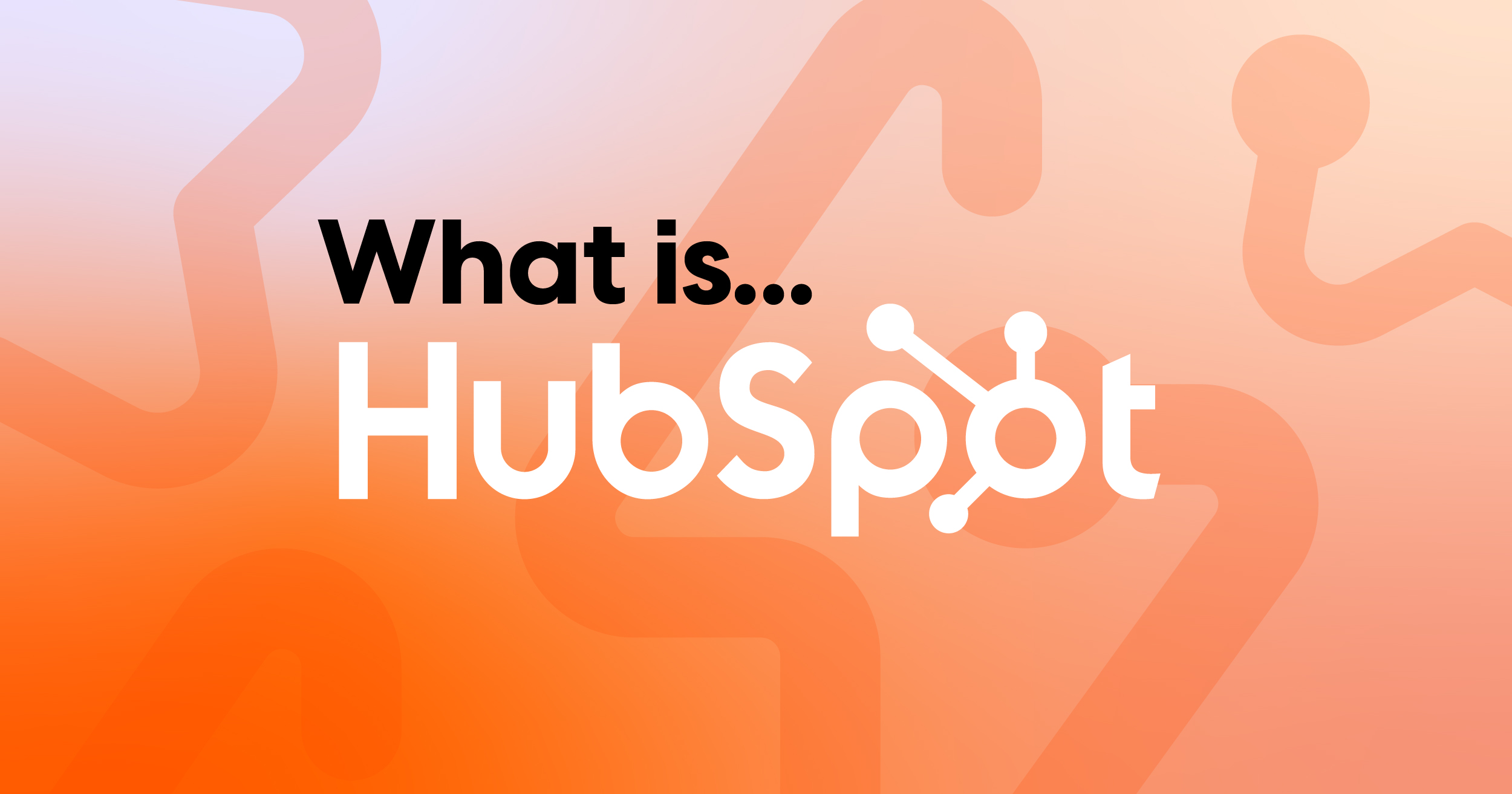 What is HubSpot? A Complete Guide for Enterprise Businesses
If you’ve ever felt like your marketing, sales and service tools are scattered across too many...
What is HubSpot? A Complete Guide for Enterprise Businesses
If you’ve ever felt like your marketing, sales and service tools are scattered across too many...
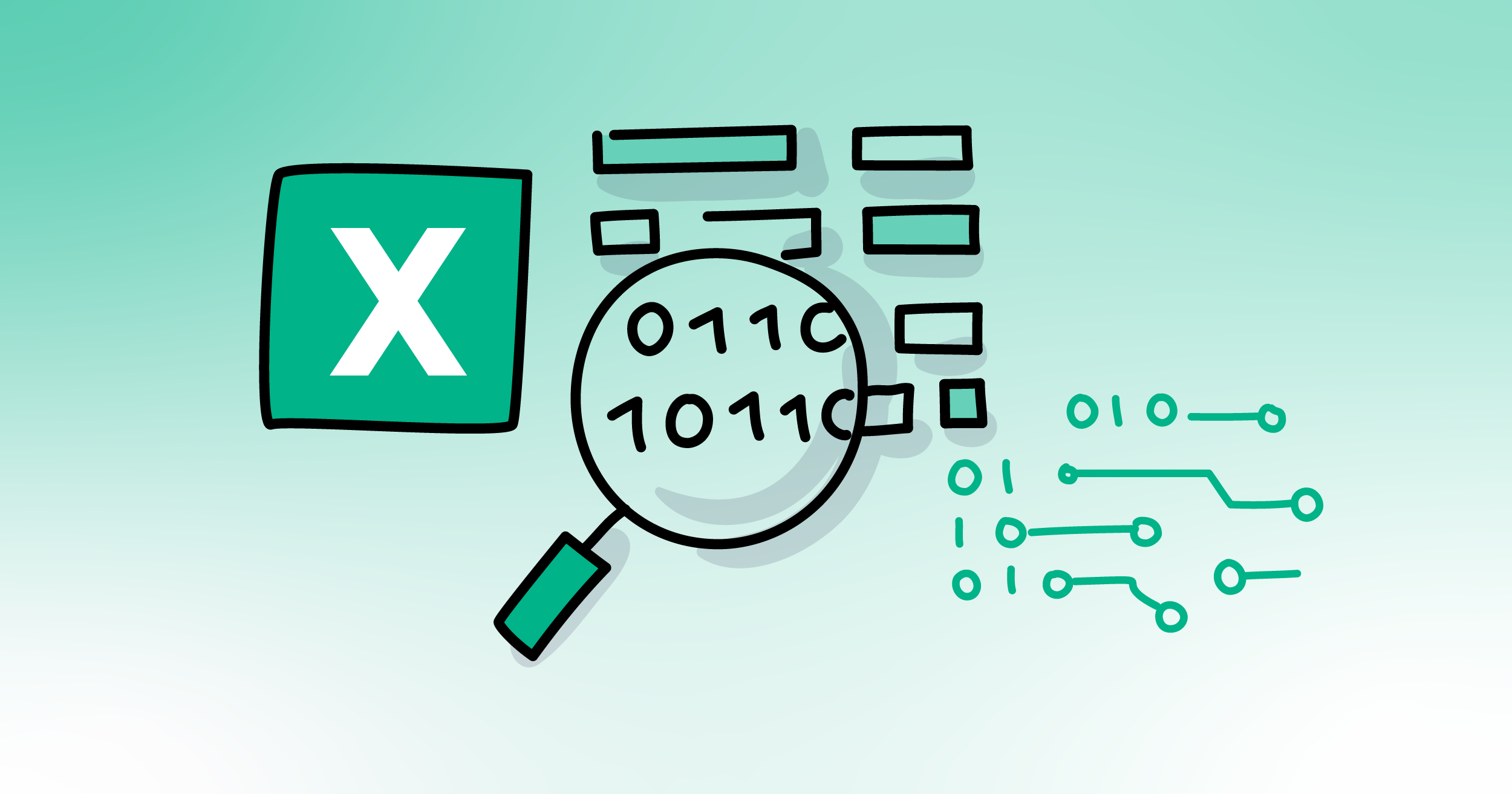 How to clean data in Excel before Switching CRMs
Excel can be a powerful tool for cleaning data before migrating to a CRM system. Many businesses...
How to clean data in Excel before Switching CRMs
Excel can be a powerful tool for cleaning data before migrating to a CRM system. Many businesses...
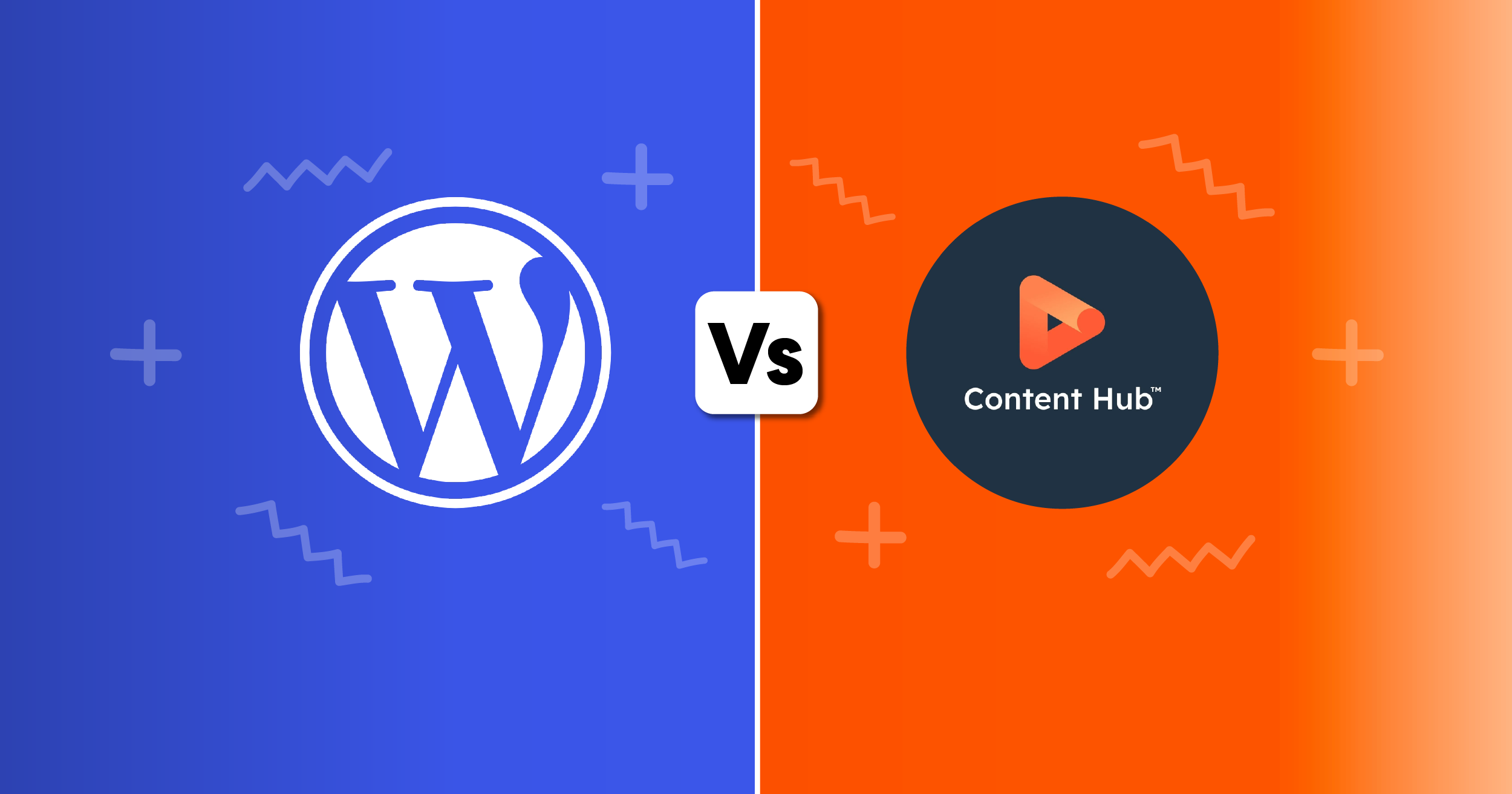 WordPress vs Content Hub (HubSpot)
How to pick the right platform for your business: Both WordPress and Content Hub are powerful...
WordPress vs Content Hub (HubSpot)
How to pick the right platform for your business: Both WordPress and Content Hub are powerful...



